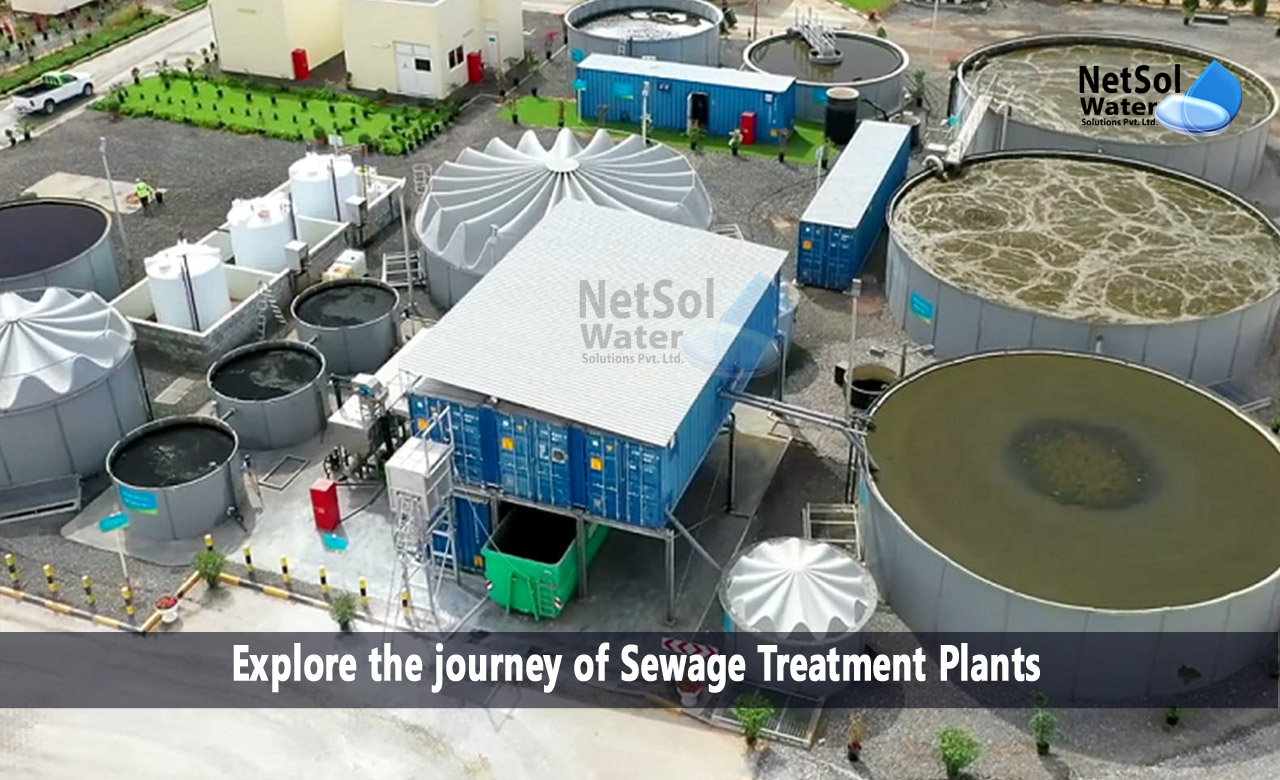Explore the journey of Sewage Treatment Plants
In an era where sustainability and environmental consciousness have become increasingly crucial, industries worldwide are seeking innovative solutions to minimize their environmental impact. Manufacturers, in particular, have faced growing scrutiny for their contribution to pollution. To address these concerns, sewage treatment plants have undergone a remarkable transformation from simple pollution control measures to advanced facilities that prioritize resource recovery. This evolution not only promotes sustainable practices but also presents manufacturers with valuable opportunities for cost savings and revenue generation.
In this blog post, we will explore the journey of sewage treatment plants, highlighting how they have evolved into resource recovery hubs for manufacturers.
The Traditional Role of Sewage Treatment Plants
Traditionally, sewage treatment plants were primarily designed to remove pollutants and protect water bodies from contamination. These plants treated wastewater from manufacturing processes, focusing on eliminating harmful substances and reducing the overall environmental impact. By utilizing physical, chemical, and biological processes, these plants could effectively treat and discharge effluents that met regulatory standards. However, the focus was primarily on mitigating the negative consequences of industrial activities rather than maximizing resource utilization.
The Shift towards Resource Recovery
Over time, as sustainability became a global imperative, the concept of resource recovery gained momentum. Rather than viewing wastewater as a waste product, innovative minds recognized the potential value hidden within it. Sewage treatment plants began to explore methods for extracting and repurposing various resources present in industrial effluents.
- Energy Generation: Modern sewage treatment plants are equipped with anaerobic digesters that utilize organic matter in wastewater to produce biogas, a renewable source of energy. Biogas can be used to generate electricity or heat, providing manufacturers with a greener alternative to traditional energy sources.
- Nutrient Reclamation: Sewage treatment plants have developed technologies to extract valuable nutrients like nitrogen and phosphorus from wastewater. These nutrients can be transformed into fertilizers or used in the production of biofuels and bioplastics, offering manufacturers a sustainable and cost-effective source of raw materials.
- Water Reuse: Advanced treatment processes enable the purification of wastewater to a quality suitable for non-potable uses such as irrigation, cooling towers, and industrial processes. By implementing water reuse systems, manufacturers can conserve freshwater resources, reduce their reliance on municipal water supplies, and decrease operating costs.
- By-Product Recovery: Sewage treatment plants are increasingly exploring ways to recover and recycle by-products present in industrial wastewater. Various industries generate waste streams containing valuable chemicals or substances that can be recovered and reused, promoting a circular economy approach and reducing reliance on virgin resources.
Benefits for Manufacturers
The evolution of sewage treatment plants from pollution control to resource recovery offers numerous benefits for manufacturers:
- Cost Savings: By recovering resources from wastewater, manufacturers can reduce their reliance on expensive raw materials and energy sources. This not only cuts down on procurement costs but also reduces waste disposal expenses, resulting in significant savings.
- Environmental Compliance: Resource recovery aligns with strict environmental regulations, enabling manufacturers to meet compliance standards more efficiently. By adopting sustainable practices, companies can enhance their reputation, attract environmentally conscious consumers, and differentiate themselves in the market.
- Improved Resilience: Resource recovery creates a more resilient manufacturing ecosystem by reducing dependence on external resources and minimizing vulnerability to supply chain disruptions. By optimizing resource utilization and closing material loops, manufacturers can mitigate the risks associated with resource scarcity and price volatility.
- Enhanced Corporate Social Responsibility (CSR): Embracing resource recovery demonstrates a commitment to sustainability and CSR. Manufacturers can showcase their environmental stewardship, fostering positive relationships with stakeholders and attracting investors who prioritize sustainable business practices.
Conclusion
The evolution of sewage treatment plants from pollution control mechanisms to resource recovery centers represents a remarkable shift in the approach to industrial wastewater management. Manufacturers can now view their effluents not as burdensome waste but as valuable resources waiting to be harnessed. By adopting resource recovery practices, manufacturers can enhance their environmental performance, reduce costs, comply with regulations, and contribute to a more sustainable future. As industries continue to embrace these innovative solutions, the transformation of sewage treatment plants will play a pivotal role in facilitating a circular economy and forging a path towards a more sustainable manufacturing landscape.
Netsol Water is Greater Noida-based leading water & wastewater treatment plant manufacturer. We are industry's most demanding company based on client review and work quality. We are known as best commercial RO plant manufacturers, industrial RO plant manufacturer, sewage treatment plant manufacturer, Water Softener Plant Manufacturers and effluent treatment plant manufacturers. Apart from this 24x7 customer support is our USP. Call on +91-9650608473, or write us at enquiry@netsolwater.com for any support, inquiry or product-purchase related query.



